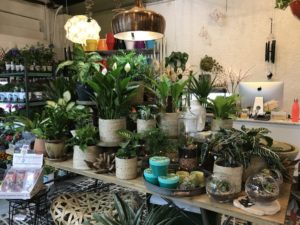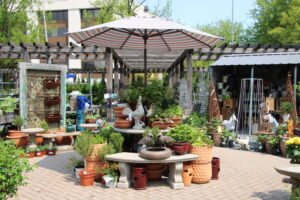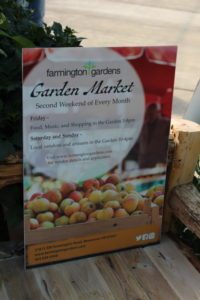Say What You Mean. Mean What You Say.
***In this article, the author refers to two very informative tables. To view these tables, please click the PDF link below the article.
Semantics are important. We might remember as children (or even adults) having an argument with a parent that went something like this, “Well, you didn’t say I couldn’t do ____! So, I did it anyway.”
Semantics, the study of meanings, is crucial in many aspects of business especially now that many consumers report they have an increasing interest in or concern about the environment. Our research team received a USDA grant to investigate what Americans thought about when they heard or saw four words relating to the environment: sustainable, eco-friendly, local and organic. We suspected there is great ambiguity and confusion about these terms and wanted to produce some evidence to support (or refute) that supposition. Our goal was to help enlighten horticultural professionals about the words they might use in communications (e.g. signs, websites, etc.) to better understand what their potential customers were thinking … knowing this may help them more effectively connect with their customers, enhancing sales and profits.
During the spring of 2011, we launched an online survey with Global Market Insite Inc.’s database of U.S. and Canadian consumers. A total of 2,511 consumers (from the 2,700 invited) took the online survey with 68 percent and 32 percent of the participants from the U.S. and Canada, respectively. Each U.S. state and Canadian province was represented and our demographic profiles were similar to the averages in U.S. and Canadian census information.
Our U.S. sample’s average age (35.8), percent Caucasian (78.1 percent) and household income ($65,273) were similar to the census reported average age (37.2), percent Caucasian (78.1 percent) and household income ($52,762). Thus, we are comfortable extrapolating these findings to a general North American population, not just one that makes plant purchases.
We asked a variety of questions focused on horticultural purchases and with traditional demographic and socio-economic questions. We asked them in separate questions whether or not they had ever heard of the terms (sustainable, eco-friendly, local and organic) and subsequently showed them a list of terms that might potentially be connected to the word in question. Participants were then asked to mark any and all characteristics they perceived characterized that type of product. Organic is the only word regulated by law in the U.S. and Canada. Results are summarized in Table 1 (sustainable and eco-friendly) and Table 2 (local and organic).
Eco-friendly and sustainable are relatively common terms in both the U.S. and Canada with less than 8 percent in either country not having heard of the term. We saw quite a few similarities between U.S. and Canadian survey participants with regard to the words they associated with eco-friendly and sustainable. Among those who had not heard the word eco-friendly, the top associations were green, organic, bio-degradable and recycling. Among those who had heard the word eco-friendly, the top associations were green, energy savings/efficient/conservation, biodegradable and recycling. It was interesting to note that more of the U.S. survey participants who had not heard the term eco-friendly associated it with a negative sales or marketing gimmick compared to Canadians.
One of the key points we saw was that many more consumers who had heard the term eco-friendly associated it with energy savings/efficient/conservation compared to those who had not. It was also noteworthy that 23-35 percent of those who had not heard eco-friendly and 53 percent of those who had associated organic with it.
For the term sustainable, the top associations among those who had not heard the term were very much like the associations for those who had heard the term: green, socially responsible, and energy savings/efficient/conservation. A much higher percentage of those who had heard the term sustainable associated it with a lower carbon footprint. Fewer associated organic with sustainable, whether or not they had heard the term sustainable, but more who had heard the term sustainable did associate it with organic.
Most of the survey participants had heard the words local and organic and we saw more differences between U.S. and Canadian perceptions for what the term local meant compared to the term organic. Two-thirds accurately reported that “decreased miles to transport” was associated with local and a third reported local had a lower carbon footprint. However, nearly one-third also said local was better for the environment and more nutritious. One-quarter of U.S. study participants associated local with organic and 20 percent said locally produced carried a higher price (which may or may not be the case).
Organic was the only legally regulated term we included in the study. Certified organic products have no use of genetically modified organisms (GMOs) or synthetic pesticides. Here we see the greatest association of organic with no synthetic pesticide use or GMOs, but with the use of natural fertilizer. However, half of the study participants report associating organic with better for the environment and higher prices.
Which is What?
More than 92 percent of the people in this study had heard these four words. However, we saw a lot of ambiguity, misperceptions and confusion about what, specifically, these terms mean. Looking through the lists of associations, there are both positive and negative associations as well as accurate and inaccurate associations. We saw the most accurate perceptions related to what organic means, but this is likely due to the fact that this is a legally-regulated term.
To help clarify exactly what environmentally friendly practices are used, our results suggest the best course of action for marketers is to use more specific terms when they are conveying how they are being environmentally friendly.
Were plants grown with energy-saving practices? Were they grown within 50 miles of the retail location? Are they certified organic? Were they transported with an energy-
efficient vehicle? If so, that is what should be communicated. Just like those arguments when mom or dad did (or did not) specifically say we should (or should not) do something, we need to say what we mean and mean what we say. This will help reduce the confusion and clear up some of the ambiguity associated with these terms, enabling us to better connect with our current and potential customers.

Properly market eco-friendly terms and Bridget Behe says you’ll catch your customers’ attention.

















 Videos
Videos





